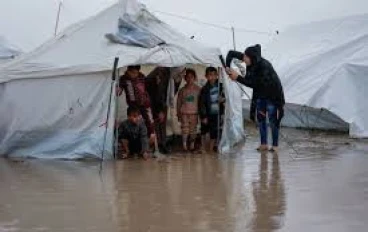
every one will die
It was not an ordinary day.

And the case I saw in the cardiac ICU was nothing but a precise summary and a real-life observation of what we always hear:
“Life and death are in God's hands.”
The cardiac ICU in our hospital consists of a hallway longer than it is wide, with five rooms separated by walls on each side.
At the front, it opens to a corridor that connects the entire unit. Opposite the rooms is a space with the resident’s desk, nurses’ station, and monitors we use to track the patients.
I started my shift in the morning, as usual, by checking the rooms and observing the patients from a distance—without diving into their details—just to assess who looks tired, who seems stable, and who might be discharged today.
In room five, I saw two patients:
One was a 70-year-old man suffering from metastatic lung cancer, in shock for three days, receiving inotropic agents due to cardiogenic shock.
The other was an elderly woman in her eighties with a heart block, clearly breathing what seemed to be her last breaths.
I moved to room four and found a young man in his twenties sitting with his friend and companion, laughing and chatting.
I continued to the rest of the rooms—nothing caught my attention.
Then the supervising doctor came to check on the young man.
I learned that he had cardiomyopathy and was 26 years old (I was 27 at the time). I thanked God for the blessings I had and for sparing me from what this young man was going through.
The doctor told him:
“You’re better today than yesterday. Your vitals are stable. You’ll stay under observation and take your medication today. Tomorrow, God willing, I’ll discharge you.”
The young man sighed and said, “Can’t I leave today, doctor? I feel better.”
The doctor replied, “You can, but I prefer you stay today. Tomorrow you’ll go home.”
“Alright, doctor.”
A few hours later, the nurses called me urgently—the elderly woman in room five had gone into cardiac arrest.
I rushed to her, but death had reached her before I did.
I declared her dead.
The 70-year-old man with cancer watched, murmuring prayers, while the young man looked saddened—witnessing death for the first time.
The rest of the day passed with stable cases.
I went to my room to sleep.
Knock knock
I heard knocking on my door. I looked at the clock—it was 6 a.m., two hours before my shift ended.
“What’s going on?”
“Doctor, the young patient Abbas is sweating.”
I went to him.
“How are you, Abbas?”
“I feel hot and I’m sweating.”
I looked at him—he was drenched in sweat.
I asked the nurses to quickly bring him a vial of parol and stayed by his side while they performed an ECG.
“Abbas, does your chest hurt?”
He didn’t answer.
I saw in his eyes and face that he was struggling to speak.
He was sweating as if he had just come out of a pool.
“Abbas, are you short of breath?”
As I looked into his eyes, they rolled upward. His whole body began to convulse, his head tilted back, his tongue pressed against his lips, and he gripped the bed rails tightly with both hands.
“Abbas!”
“Abbas!”
“Bring the defibrillator quickly!”
Asystole
Adrenaline. CPR.
Adrenaline. CPR.
I stayed with him for half an hour and declared his death at 6:35 a.m.
I began filling out the death paperwork and writing notes in his chart.
The patients and their companions in the other rooms were all shocked by the young man’s sudden death.
Just minutes later, the companion of the 70-year-old cancer patient called us—his patient had suddenly stopped speaking.
I dropped the pen and chart and rushed with the nurses to the patient.
He had followed the young man and the elderly woman.
Thus ended one of the most unforgettable shifts of my life, along with the stories of three souls who had lived in this ICU just hours ago—and now, they are gone forever.
































